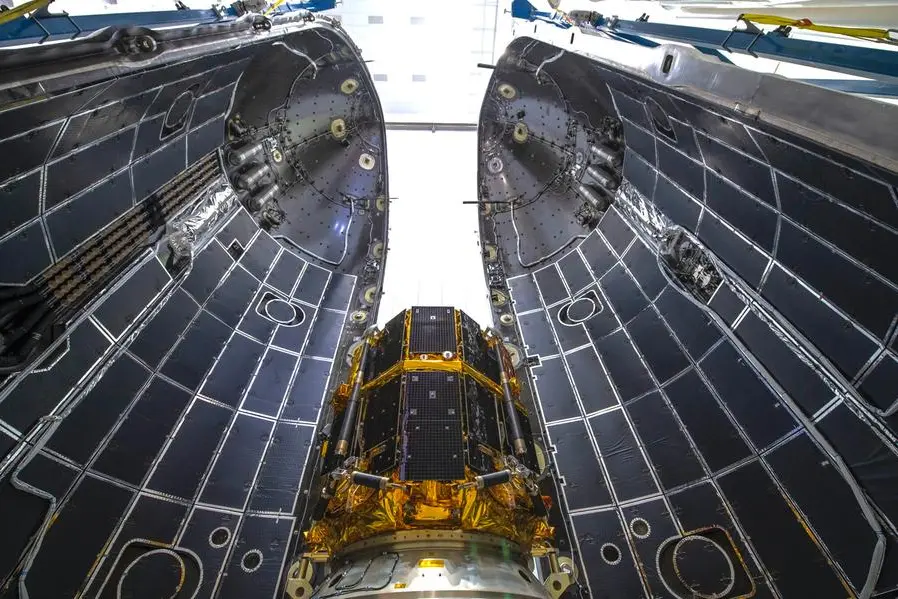PHOTO
The UAE is all set to make history, with the Arab world's first lunar rover scheduled to blast off later today. Rashid Rover will take off as part of Japan-based ispace's Mission 1 on a SpaceX Falcon 9 rocket at 12.39pm UAE time.
SpaceX said its rocket is now vertical on pad 40 in Florida ahead of the launch of the first privately-led Japanese mission to land on the lunar surface.
"Latest weather forecast is >90% favourable for Falcon 9's liftoff on Wednesday, November 30," SpaceX added.
A backup opportunity is available on Thursday, December 1.
Salem AlMarri, Director-General of the Mohammed Bin Rashid Centre (MBRSC), said the teams stationed in Florida and control centre in Dubai are "fully prepared" for the mission.
"A few hours separate us from the first Arab and Emirati mission to the Moon," he said.
Once launched, the spacecraft will take a low-energy route to the Moon rather than a direct approach. Mission 1 will venture out to deep space and back again "on a sweeping trajectory designed to reduce the amount of fuel the spacecraft needs to carry", according to the European Space Agency (ESA).
This means that the rover will land about five months after the launch — in April 2023.
The ESA will ensure communication between the spacecraft and its teams on Earth throughout the mission.
Ispace fulfilled the first of its 10 success milestones on Tuesday: Completion of launch preparations. This included the integration of the Mission 1 lunar lander into the SpaceX Falcon 9 rocket.
Here is what follows after launch:
> Completion of launch and deployment.
> Establishment of a steady operation state.
> Completion of first orbital control manoeuvre.
> Completion of stable deep-space flight operations for one month.
> Completion of all deep space orbital control manoeuvres before lunar orbit insertion.
> Reach the lunar gravitational field/lunar orbit.
> Completion of all orbit control manoeuvres in lunar orbit.
> Completion of lunar landing.
> Establishment of a steady system state after lunar landing.





















